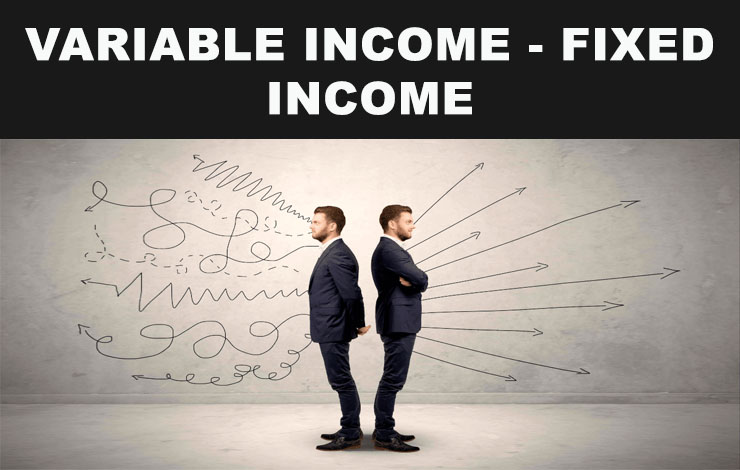When investing, one of the main decisions investors face is choosing between fixed income and variable income. Both options have distinct characteristics and offer different levels of risk and return. In this article, we will answer well-researched questions about how to make informed decisions when choosing between fixed income and variable income in 2023, with up-to-date and truthful information.
What is fixed income and variable income?
Fixed income is a type of investment in which the investor lends money to an institution, such as a government or a company, and receives interest in return for a certain period. The return on fixed income is generally predictable and more stable.
On the other hand, variable income encompasses investments in assets such as stocks, real estate funds and cryptocurrencies, whose return is not predictable and can vary according to the appreciation or devaluation of these assets in the market.
What are the risks and returns of fixed income?
Fixed income is considered a more conservative investment option as it offers lower risk compared to variable income. Fixed income investments, such as government bonds and CDBs, often have predetermined rates of return, providing the investor with greater predictability of yields.
In contrast, due to lower risk, fixed income offers potentially lower returns, especially in periods of low interest rates.
What are the risks and returns of variable income?
Equity, as its name suggests, has volatile returns that can vary significantly over time. Investing in stocks, for example, can bring great opportunities for appreciation, but it can also result in substantial losses.
However, in contrast, equity can also offer much higher returns, especially for investors willing to take on greater risks.
How to determine the risk profile of the investor?
To determine the risk profile of the investor, it is necessary to consider factors such as:
a) Risk tolerance: How much the investor is willing to risk to seek higher returns.
b) Investment horizon: The period of time in which the investor intends to keep his investments.
c) Financial objectives: The financial goals of the investor, such as retirement, purchase of property or education of children.
d) Investment knowledge: The investor’s level of knowledge about the different types of investments available.
What are the strategies to diversify the portfolio?
Diversifying the portfolio is a key strategy for balancing risks and returns. Some forms of diversification include:
a) Invest in different asset classes: Combine fixed and variable income in the portfolio to balance the risks.
b) Diversify sectors and markets: Do not concentrate your investments in a single sector or market; Diversify between different segments of the economy.
c) Term allocation: Consider investing in assets with different maturity maturities to get a steady flow of cash and maximize opportunities.
d) Re-evaluate the portfolio periodically: Review your investment portfolio regularly and adjust the allocation as needed in line with market changes and your financial goals.
How to seek reliable information to make informed decisions?
To make informed decisions, it is important to seek information from trusted sources such as financial reports, expert analysis, and recognized investment platforms. In addition, consulting a financial advisor can provide personalized guidance, taking into account the investor’s risk profile and financial goals.
What did we learn in this article?

What we learned
When choosing between fixed income and variable income, it is essential that investors understand their risk profiles and seek up-to-date and truthful information to make informed decisions.
Fixed income offers greater stability, while variable income can bring higher returns, but with increased risks. Portfolio diversification is a key strategy for balancing risks and opportunities.
Remember that each investor has specific goals and needs, so consulting with an investment expert can be a more informed approach and aligned with each individual’s financial goals in 2023.
